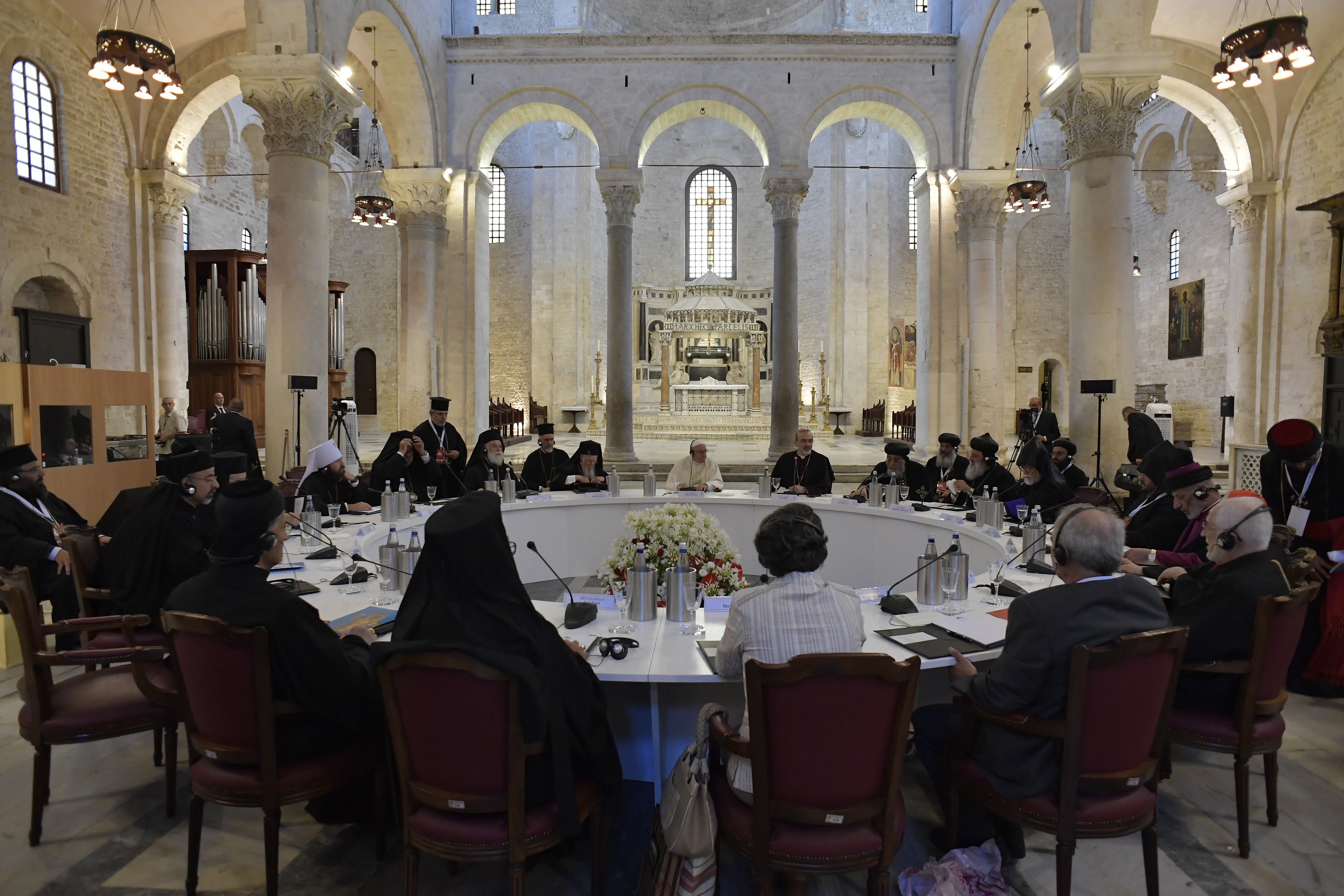Peace
Those words and gestures that the Pope, the patriarchs and the bishops exchanged around a round table prepared in the central nave of the basilica: a meeting “behind closed doors”, whose spiritual doors are wide open to embrace suffering and disseminate hope

Only time will tell us which of the many seeds sown by Pope Francis and by the Patriarchs, Metropolitans and bishops representing Churches in the Middle East, gathered in Bari to pray and reflect on peace in those martyred lands, will deliver flowers and fruits, not only for the Churches and the Christians present in the region where “are rooted the very souls” of all Christians, but also for the testimony of the disciples of Christ in the company of humankind and for the whole world.
Perhaps those informal words and gestures will usher in a spirit of ever closer brotherhood, expressed by participants who engaged in dialogue by “mutual encouragement”, also owing to constant interaction that with time grew into true spiritual familiarity. Perhaps it will be ushered in by the joint invocation to “Jesus, Prince of Peace”, before the relics of Saint Nicholas, with the lighting of the oil lamp with a single flame in the crypt venerated by Christians of the East and of the West.
Perhaps the fruits will be delivered through the powerful words addressed on several occasions to all those with government responsibilities and to public-opinion leaders, calling for an end to “the silence and the complicity of many” , for an end to the “murderous indifference”, “to give voice to those who have none, to lift up our voices in opposition of indifference that kills.”
Perhaps fruits will be reaped by the seed carried by the winds of Bari’s seafront, our brother wind that extinguished almost all the lamps of peace held by popes and patriarchs, as if to show them and us that the only flame that we must not let go of is the flame of brotherly Christian love. Or perhaps fruits will reaped thanks to other words, words of consolation and closeness to Christians who continue living in those lands, praying and working, bearing witness also with the ecumenism of blood that makes it worthwhile to live and to die for Christ, proclaiming the good news with their mere existence to a world that wants us to become anesthetized and wants us to accept hatred, wars, inhumanity, as something normal. I want to believe that
The greatest fruits will be reaped through the words and gestures that none of us has heard or seen,
neither on Saint Nicholas’ Square nor on the seafront, and nor on the media. Those are the words and the gestures that the Pope, the Patriarchs and the bishops exchanged around the round table prepared in the central nave of the basilica. A meeting behind closed doors, whose spiritual doors are kept open to embrace sorrow and disseminate hope. There, in that circularity, symbol of Trinitarian communion, in that gathering where nobody had the first place, occupied by the One and Only Lord, participants had the opportunity of communicating to each other the burning flames of their hearts, walking together in search of a peace that comes from the Lord, there they shared and listened to the suffering and the hopes of Christians in the respective Churches, there they gave thanks to the Lord for the joint religious witness enjoined on the disciples of the Lord by the tragic events occurring in those lands, there they jointly revived the memory of the times when the term “Christians” reverberated for the first time, indicating “the way of the Lord”, those who followed the footsteps of the Man of Nazareth, who died and was resurrected to be humanity’s Saviour. And who knows whether from the threshold of the church, along with doves of peace, took wing also the passionate yearning for the visible unity of Christians, who knows whether coming together as brothers around the same table is a prophecy that hastens the coming of the day when all will communicate to the same bread and the same cup around the same table, to the body and blood of the One Lord of our churches and our lives.